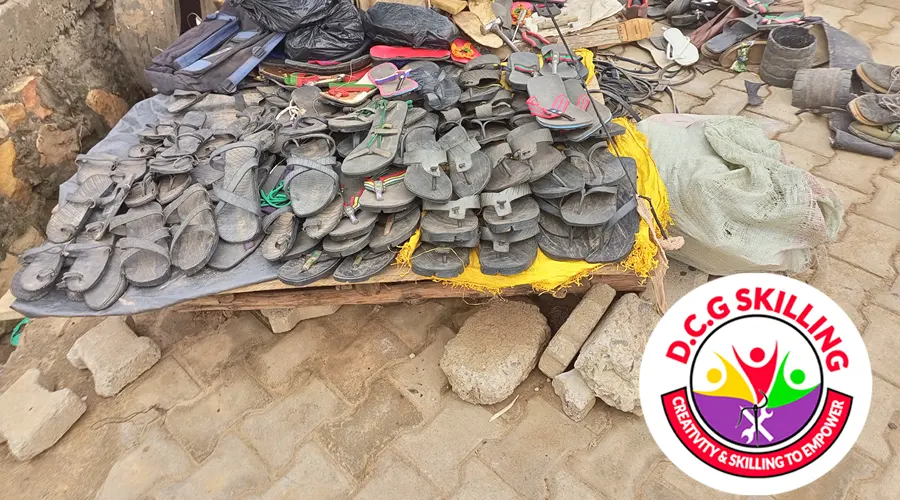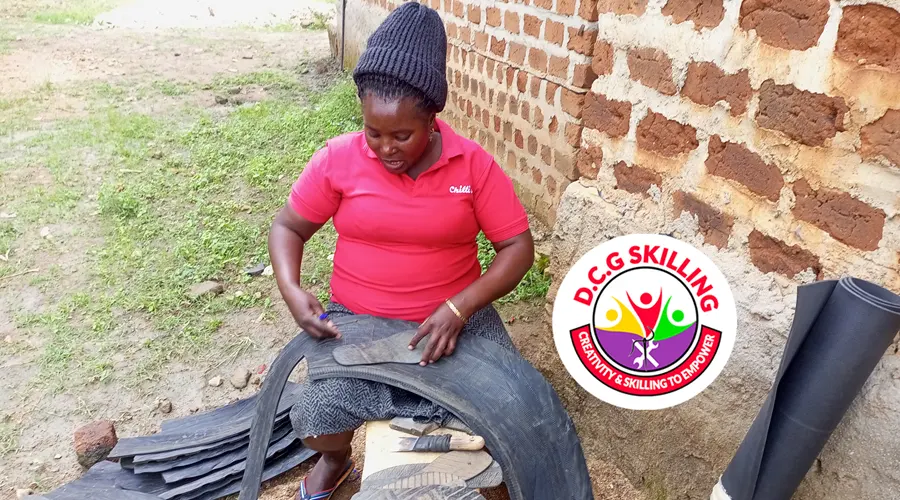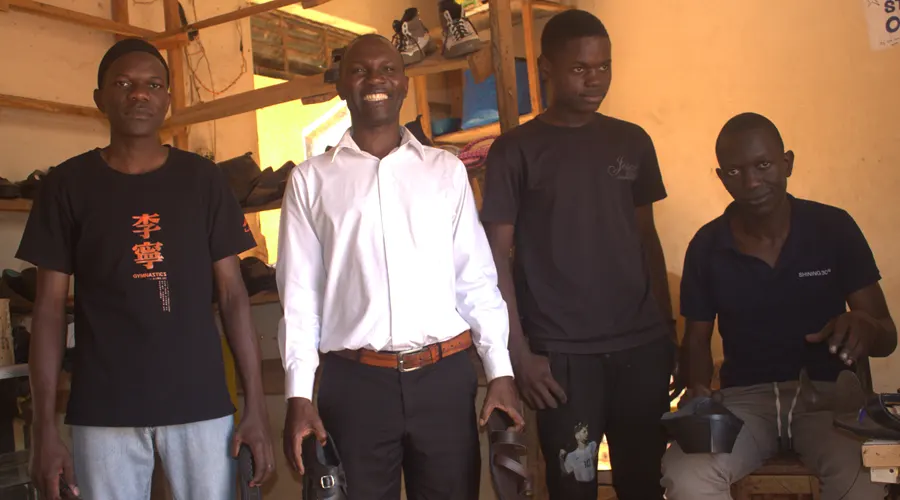Shoe Making
Training courses for young shoemakers
Julius wants his organisation to offer as many opportunities as possible to the local population: ‘Many of the shoes that are available in Uganda are imported. However, we would like to produce locally, offering opportunities to for example local suppliers. By sourcing the hides and skins we need to make our products as much as possible from them. But also by offering young people the chance to be trained as a shoemaker. For example by hands-on training that lasts about 8 months. After completing the course, the student has learned enough skills to make simple products such as sandals. Over the past few years, Apex has trained some 40 young people to become shoemakers. Some of them have started their own successful businesses, and some of them are working at Apex itself.
There is sufficient demand for the products that Apex makes. However, the organisation does not have the necessary resources to expand. That is why they have asked Gered Gereedschap for help.
About
Tandika Uganda is a community based shoe training project that offers training in basic hand shoe making techniques and simple machine aided methods. Through a biweekly training programme, Tandika Uganda offers basic shoemaking skills that are simple and accessible without the use of complicated heavy machinery. The training equips people with the knowledge to start their own shoemaking cottage industries. The training which is offered to individuals and groups, covers; introduction to tools & materials, shoe design, basic shoe construction (lasting, cutting & sewing), shoe sizing and shoe styles (ladies, men, children), finishing & embellishments and procurement of materials. Each pair of shoes made requires hours of intense labor to craft and Tandika Uganda believes each pair made is a lesson in patience and an investment self in self-sufficiency. Shoemaker and teacher Rosette Twizere wants to make shoemaking skills simple, accessible and fun. As a student, you'll be given the skills and creative control to create a pair of your very own shoes and as a Tandika Uganda alumni you will be equipped with the knowledge to carry on with shoemaking in your own home! We are dedicated to teaching the art of hand-making shoes to promote self-sufficiency and sustainability. Our goal is to empower all people to enjoy a satisfying and liberating experience around creating footwear and leather work. "Buy a pair of shoes and you cover your feet for a year or two. Learn how to make shoes and you can shoe yourself, family and friends for a lifetime."
Dalton Ahimbisibwe, 43, started making shoes when he realized that all people want to wear shoes. That was in Ntinda, a Kampala suburb, in 2005. Together with a team of five artisans, the hand-made shoes are crafted with special attention to maintaining both the quality and durability. Each member works on a different aspect of the shoe; some cut the leather into long strips while others glue them together before they are sewn to the shoe base. The leather is then wrapped around a shoe shaper made of wood or plastic before being cut to different sizes. Ahimbisibwe’s greatest challenge is using manual sewing and skiving machines, which delays the big orders. His biggest clients are pupils and NGO’s, which buy them for their sponsored children.
Success tips; Be creative, curve a niche
Ahimbisibwe explains that the key ingredient to success in the shoe-making business is creativity coupled with having an incomparable skill in creating and designing footwear for everybody. “After learning the basics, you should now find out on how to design the shoes and decide what type of shoes you want to produce and sell to the buying public,” he says, adding that the process involves rigorous research on recent trends in creating designs on the shoes. Though the main goal is to make a profit, Ahimbisibwe cautions that the designs should not only attract potential buyers but also be affordable without sacrificing quality
Rosette Twizerimana was born in Kisoro Uganda and is a proud holder of a diploma in Accounting. Rosette worked for several companies until she decided to pursue her longtime dream of shoe making. Rosette is the founder and lead trainer at Tandika Uganda. She is self-taught by trade and specializes in open shoes. She has consulted with several shoe makers in Kenya, Uganda and visiting artisans. Because of her passion, Rosette is constantly improving her craft through online shoe making resources from master crafts men in Italy, Turkey, India and the US.
Since 2016, Rosette has trained over 1500 people in the hand manufacture of leather sandals, slip-ons, and lace-up shoes hand-crafted from recycled, tires and an assortment of locally-sourced materials.



